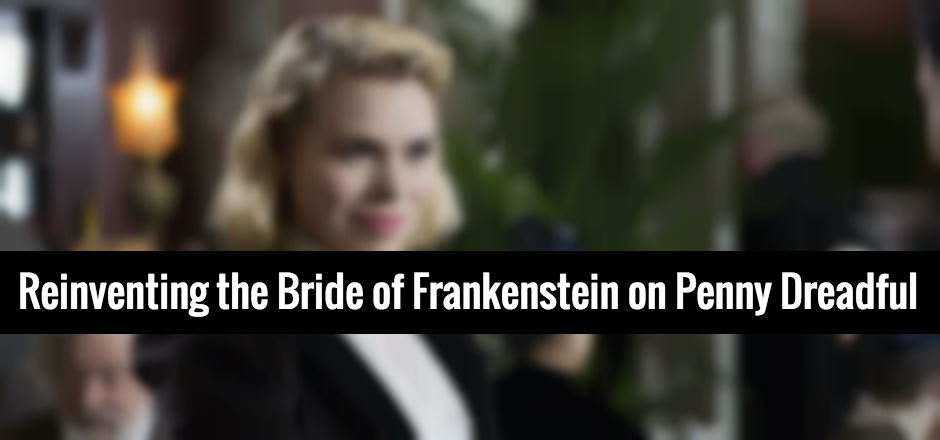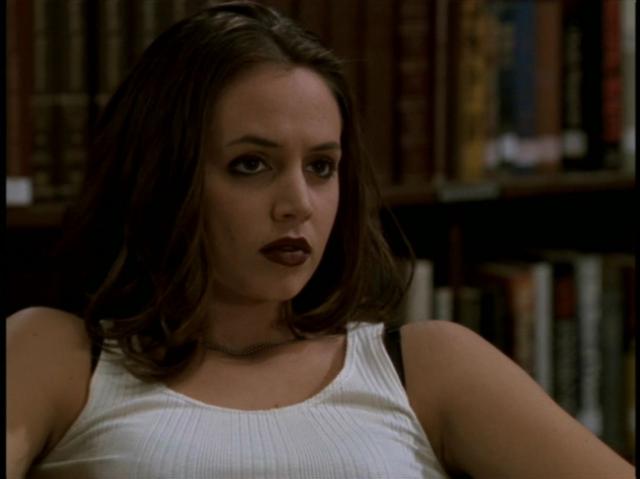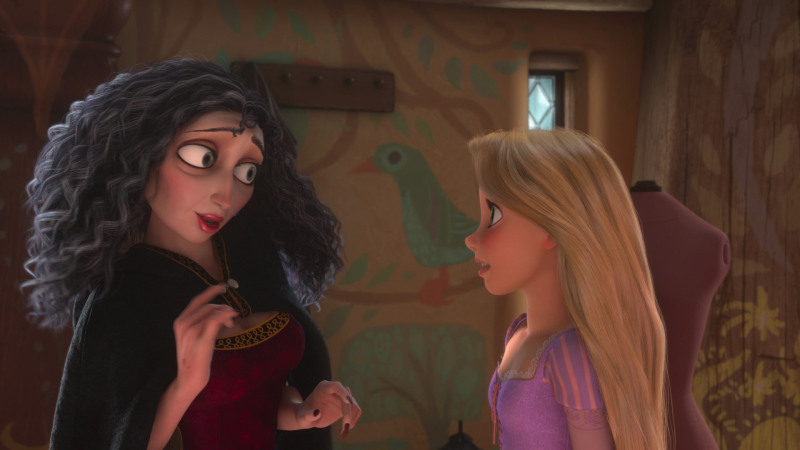WARNING: This review contains spoilers for season two of Penny Dreadful. If you haven’t seen the finale or any of season two, read at your own risk.
The season two finale of Showtime’s Penny Dreadful aired July 5th, leaving me desperate for season three, but also with the perfect topic for this month: Independence. Or rather, autonomy. One of the best characters this season is Lily (Billie Piper) in the role of the bride of Frankenstein’s monster.
Without a doubt, Penny Dreadful is my favorite series currently on television. Show creator John Logan does a masterful job of capturing Victorian London in atmosphere and language, bringing in major players from Gothic fiction’s greatest works into a world that feels utterly believable.
Season two opens with the aftermath of season one, one corpse specifically holding a particular interest for Dr. Frankenstein. He may have murdered someone last season for the sheer purpose of making the Creature (Rory Kinnear) his bride. I’m impressed by how much of Mary Shelley’s original text Logan has kept throughout the seasons, and I nearly died of curiosity regarding a new Bride mythos.
If you’ve read Frankenstein, you know the bride never comes to fruition. Victor, in a moment of debatably rational thinking, tears apart the female body he’d been constructing. The Creature is understandably infuriated.
Lily has a tragic legacy set before her. The thing about “the bride” is just that: she’s an object. The sole purpose of her creation is to love and serve Frankenstein’s first-born. It’s a box that fits uncomfortably well within Victorian society.
The monster, by the way, now goes by John Clare. I much preferred Caliban, the name given him in season one, but hey, he’s got free will. He can be who he wants. I will, from this point, refer to him as Mr. Clare.
Harnessing the power of electricity via storm, Victor resurrects the female he later names Lily. She rises from her bath trembling, confused, and naked, ushered into her new life by her creator. Victor tells her they’re cousins, and her memory loss is the result of an accident. Clever boy. He dyes her hair from brown to blonde, erasing who she was in her last incarnation.
“Did I admire fair-haired ladies?” she asks. “I did,” is Victor’s answer. “They always seemed kinder, like angels.” My red flags started to rise. Then Lily asks after Mr. Clare. Victor tells her he was her intended.
“Did I love him?”
“I don’t know.”
“Must I love him now?”
“That’s for you to say.”
Heck yeah, free will! Mold one, BROKEN. Mr. Clare has a bit of a fit given Lily’s lack of undying love toward him, but professes he, too, wishes she love him of her own accord. Most incarnations of The Bride are never given the choice. In fact, most portrayals–notably Elsa Lanchester’s–feature a subhuman Bride. Lanchester hunched around and hissed, a behavior models on geese she’d seen at a park.
[blocktext align=”right”]The thing about “the bride” is just that: she’s an object. The sole purpose of her creation is to love and serve Frankenstein’s first-born. It’s a box that fits uncomfortably well within Victorian society.[/blocktext]Lily is not feral, but she’s not particularly Victorian. The styling department subtly emphasizes this through Lily’s hairstyle and mode of dress. It’s not really Victorian because neither is she.
Mid-season, there’s a rather lovely scene between Lily and Victor where Lily questions why she must wear corsets and high shoes.
“Seems, I don’t have the word, cruel. So women wear corsets so they don’t exert ourselves. What would be the danger if they did?”
“They’d take over the world. The only way we men prevent that is by keeping women corseted, in theory and in practice.”
My surprise at Victor’s answer, and the fact he answered at all, reflects the general attitude toward Victorian women. In fact, he says it in jest, but comes to realize he’s speaking truth. Women were restrained, by clothing and ridiculous social expectations, in effort to keep them docile. Too much spirit, too much curiosity, and they’d be send to madhouses. A lack of interest or lethargy led to the same fate.
The sole purpose of the Victorian woman was to marry, and marry well if possible, and produce children. That is exactly the purpose in Frankenstein creating the bride.
Victor actually looks ashamed. Lily frees herself from the corset. They go on to attend a ball, hosted by Dorian Gray, and it all rolls downhill from there. Her childlike nature and obedience, her reliance on Victor, is at its end.
As the season progresses, it becomes more obvious that Lily isn’t the sweet and docile creature she pretends to be. She is, in fact, murderous. Her shrinking violet act has been carefully constructed to belie her true nature. The bride isn’t merely autonomous, she’s powerful. A predator in her own right.
And in a glorious speech in episode eight, Lily tells us, and Mr. Clare (who already suspects), she’s known what she is all along.
[blocktext align=”center”]We flatter our men with our pain. We bow before them. We make ourselves dolls for their amusement. We lose our dignity in corsets and high shoes and gossip and the slavery of marriage. And our reward for this service? Back of the hand. Never again will I kneel to any man. Now they shall kneel to me.[/blocktext]
That took a turn, didn’t it? She then takes another decidedly sharp turn and professes to love Mr. Clare, knowing exactly what they are, the dead reborn. Of course, Lily doesn’t actually want Mr. Clare, no. Not when there’s a far more handsome immortal lurking in London.
Unlike her sisters, Lily isn’t horrified of what she is. She’s captivated. She knows her strength and embraces it fully, villainously. In a rather heartbreaking conclusion, she reveals all to Victor, who’s pleaded for her to return home. Who’s confessed his love.
And Lily mocks him. She’s aligned herself with Dorian, whom I foolishly hadn’t pegged as willfully evil from the start. I should have known. And thus the Bride finds herself at a very different wedding night, a destiny she’s chosen for herself. She is no longer objectified, but superior. Cruel, even.
She contemplates murdering Victor, but ultimately decides to spare him. The pain of knowing what he’s done will be far worse.
[blocktext align=”center”]Know what you have spawned and suffer.[/blocktext]
Guess we know who season three’s Big Bad is.
Season three of Penny Dreadful will air on Showtime in 2016.
—
Meghan Harker is a Horror writer for Girls in Capes. She graduated from Brenau University in 2011 with a degree in English. She attended Cambridge University for a semester, but still didn’t master an English accent. When not writing, she’s either drawing, reading, hosting the Counting Casualties podcast, hunting antiques, or lamenting that she wasn’t born in the 1800s. If you follow her on Twitter @ExquisitelyOdd, you might get the chance to play Guess Who’s Dead!, her favorite post-mortem photography game (no one else likes to play.)






